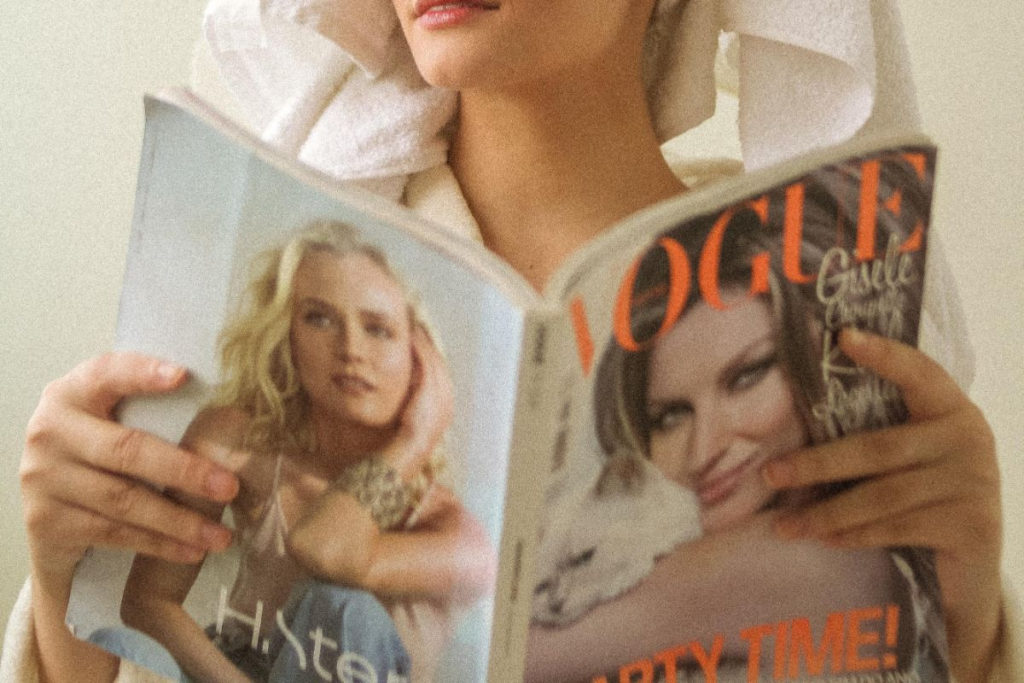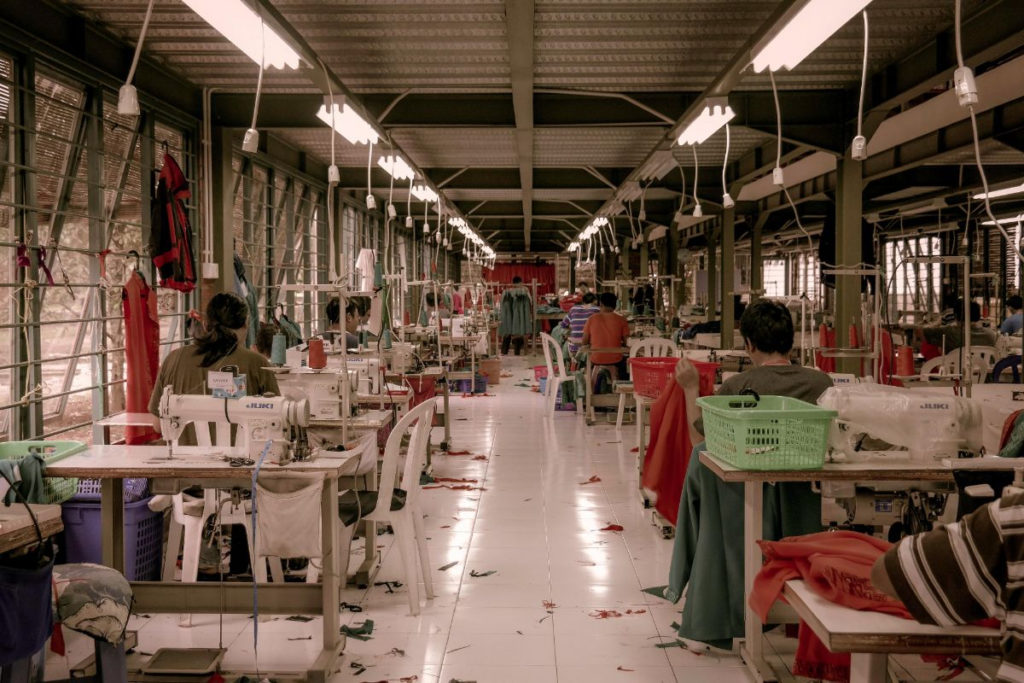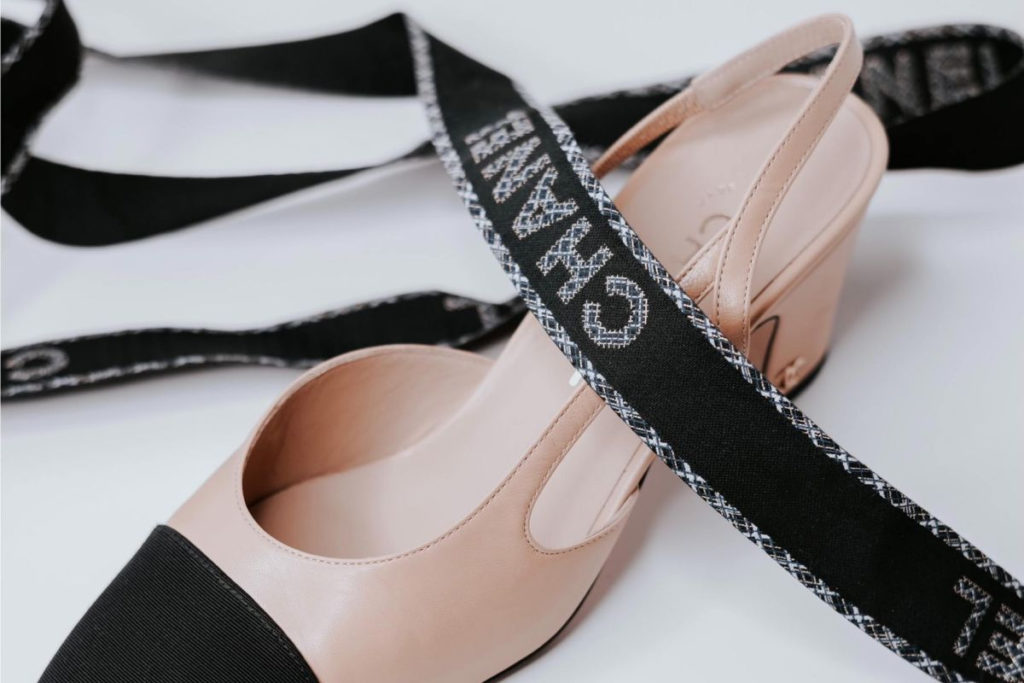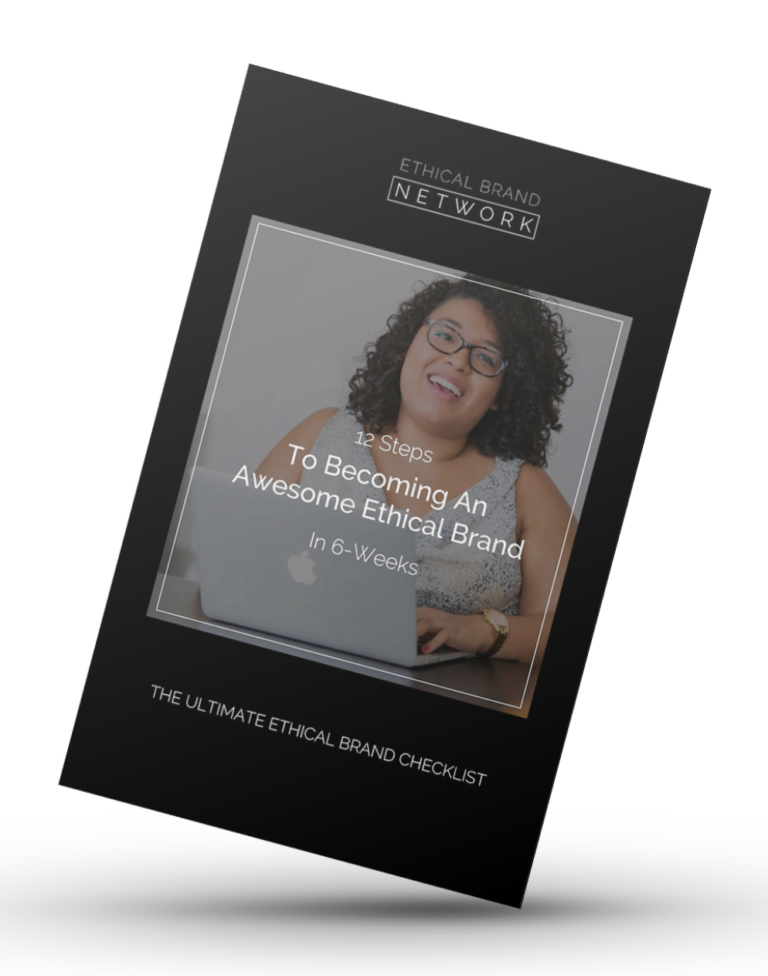Luxury brands need to shift their focus from sustainability to being ethical as well. But the question is will they and do their customers even care about the welfare of the workers or is a sustainable leather alternative a trendier talking point? Our founder Roberta Lee is often interviewed and asked to comment on ethics and sustainability in fashion, so we decided to ask her about luxury brands and their customers. In this article (written in 2021) we asked her a series of questions – and she shared her opinion of luxury brands, and whether their customers expect ethical production and sustainable practices.
She comments “The common misconception is that consumers who buy luxury products just don’t care, or that expensive brands are only concerned with opulence, rather than operating ethically and sustainably. This isn’t strictly true – but also at the same time there’s a lot of room for improvement and perhaps we need to define what a luxury brand is in today’s modern, woke world.”
We continue the interview below:
Do Luxury Brand Customers Even Care About Ethics and Sustainability?

I think sustainable practices and production have been easier for luxury brands to own up to, acknowledge their shortcomings and pledge to things differently. It’s also an easier transition for a lot of luxury brands that can afford to swap out non-sustainable practices and materials, for more expensive eco-friendlier options, and that in turn is being ‘touted’ as sustainable luxury.
As soon as Vogue started to talk about sustainable fashion, and iconic designers like Stella McCartney started to talk about fabrics, all of a sudden it became desirable because it was:
a) exclusive, new and innovative
b) still unaffordable to the masses, offering a level of prestige and status
However, the piece that is often ignored with luxury brands is the ‘ethical element’ when it comes to owning up to the inhuman treatment of animals and workers in non-regulated countries, this is not publicly spoken about.
We’ve all known about animal abuse and sweatshops since the 90s, but globalisation has enabled bigger brands to hide behind supply chains and claim ignorance of human/animal/ environmental cost.
Is Luxury Fashion Brand Louis Vuitton out of touch?
We saw the outrage and backlash to the ostentatious $1,000,000 Millionaire Speedy bag that launched in 2023 under the creative direction of Pharrell Williams with Louis Vuitton. The focus was on the rarity of it, making it only available to 1% of the population, on a made-to-order basis.
A bag made from crocodile skin and diamonds shows that both Pharrell Williams and Louis Vuitton are out of touch with what’s going on in the world today. Luxury shouldn’t be about inaccessible price points, or exotic leather or over-the-top bling – luxury in today’s world needs to be redefined.
Where’s the story about the conscious and kind creation of the bag? Where are the empowered people stories showing those who helped make the bag, now have a better quality of life? What are the ethical and sustainability credentials of the bag? Not only is killing crocodiles for their skin barbaric but the entire leather industry is known for being toxic and highly polluting.
The debate continues – where do Louis Vuitton and its customers sit when it comes to the topic of caring about ethics and sustainability and building a better future? If customers buy from this brand, it’s effectively an endorsement that the practices used to create their products are considered acceptable, even desirable.
(Updated content 2024)
Is it Important For Consumers to Support Brands and Buy Products That Align With Their Beliefs?

We are entering a new dawn of consumer demand. Gen Y and millennials are using their spending power to shop from brands that align with their values.
Brand values are essential when you run a business too, they act as a moral compass. A values-driven approach to everything will hopefully become the norm.
Think about your personal beliefs: they determine where you feel comfortable, where you want to shop and what brands you want to support. ‘Our Values’ are essentially the glue that holds our world together. Values help us know the difference between right and wrong in areas that may seem grey.
But many people aren’t even aware of their values, they think they are, but without making a serious commitment to live by them, it’s easy to say one thing and end up doing another.
Becoming more self-aware is a luxury not all of us have the time to focus on – but it is something we are starting to see much more of. Covid-19 helped us all slowdown, take stock of things and evaluate how we live and what we do.
This is why I firmly believe businesses should have clear values, and demonstrate how they meet them across all facets of their operations.
As humans, we are designed to exist in tribes. We are looking for ways to find and identify with those who share our beliefs. Brands that push a clear social or environmental agenda through their business, make it easier to build a rapport with. When we see a brand’s values align with our own, it reinforces trust. We think… that brand gets me.
Is Transparency and Data Important To Help Build Customers’ Trust?

We are all living in a time where excess information exists. Data is everywhere and we know it. For brands not to use it, makes me question why.
Data provides us with evidence that our linear systems and mindless consumption is screwing up our planet, yes, but it can also be used to show progress.
Brand stories
Sustainability isn’t an option. Sustainability is a necessity. Brands that have stepped up and admitted to their shortcomings are miles ahead in the game.
If they have committed to change, incorporated the Sustainable Development Goals, and are taking us, the consumers on the journey with them, this is where the story changes. It’s where the magic happens. This is where the life-long trust starts.
Often the people’s part in a brand’s story is overlooked in favour of sustainable materials – and that needs to change. We can’t only prioritise sustainability and forget about the welfare of workers. or overlook animal cruelty. This part of the narrative seems to be missing for a lot of well-known and emerging Luxury fashion brands.
Transparency and storytelling
Brands that communicate honestly and share progress are building community when they keep us in the loop. We connect with vulnerability and honesty.
I encourage our brands on EBD, to tell us where they are now, and where they want to be. It’s important to state what will change and by when (and show that progress) – that way they are always winning. This is why I love the indie brands in the Ethical Brand Directory – they own their stories and it makes it easier to connect with their values. Many of them start with relatively low scores and build them up over time. They do so by implementing simple ethical and sustainability practices that we recommend. Most of their changes are related to transparency/evidence/honesty and clear communication.
Is a Luxury Brands Provenance Important For Consumers?

I think provenance is a brand story superpower. To have history, to show growth and to be honest, it’s invaluable really. It’s certainly an aspect I am interested in when interviewing potential new brands for the Ethical Brand Directory. Stories are powerful, especially when accompanied by compelling evidence of making a positive impact.
“Transparency is a super power for independent brands”
I’ve always said transparency is a superpower for independent brands. Being honest, ethical and having nothing to hide means there is minimal reputation risk for their business. Larger, more established luxury brands feel like they have more to lose. This is why you see most Luxury Fashion Brand sites only focus on product images. They rarely have information about their materials, who made their pieces, or links to see their sustainability and ethical production practices.
Transparency builds trust and empathy—two great contributing factors to turning customers into ambassadors. My view is that there is no reason not to publish everything you do unless you have something to hide. Luxury fashion’s narrative needs a lot of work. Some brands like Stella McCartney are certainly progressive and pushing boundaries – but most are not.
The Ethical Brand Journey
Take for example one of our brands that was completely new to the world of ethical fashion. The founder started her brand with beautiful timeless designs and size inclusivity in mind. Whilst she opted for local London-based ethical production, she didn’t consider the full life cycle of her garments. Communication on her site lacked detail.
She’s now committed to clearer communication. There’s now evidence of ethical labour and policies. She’s decided to phase out all of her polyester materials with a key date in mind (and shared that). In the meantime, she’s provided guidance for all her customers on how to care for clothes. And to top it off she’s going to include a microfibre washbag with every purchase.
Now if that doesn’t build even more trust in her brand – nothing will. Great design and quality teamed with ethical and sustainable production the magic formula.
Are Consumers Aware That Greenwashing Exists for Luxury Brands Too?

Yes, many people are aware of greenwashing. But there’s also a huge percentage of the population that trusts ‘high-street brands’ because they’ve known them for a long time, brand name recognition goes a long way. Luxury brands are thought of much the same. High-street brands, H&M for example, there’s still shock and groups of people learning about H&M’s terrible practices despite all the coverage in the news. Not everyone is in the know – and you only know what you know!
I wrote a blog about Greenwashing back in 2018, it’s been one of our most popular blogs over the years. Greenwashing is rife, and it happens in ultra-fast fashion, fast-fashion, our local department stores on the high street, big brand names and even luxury fashion houses are guilty of doing it. Even small indie brands can accidentally ‘greenwash’ by adopting marketing slogans that they see ‘other big brands’ doing, and getting away with it and they think it’s OK to do too.
Ironically, people often assume that the bigger the company, the more famous the brand name, the less likely they are to cut corners. I had a huge debate with my family – they asked why would they greenwash. If they can afford to do it right why would they risk their reputation? Many people I talk to say they trust brand names they’ve known for years and they just assume they are operating ethically, and that laws are in place to ensure they do so….
Squeezing margins and increasing shareholder value is not what is on the mind of the everyday shopper. They just want what they want and at a good price point, which in today’s fashion industry is at a cost that doesn’t always reflect the work that’s gone into making it.

FAST TRACK YOUR BRAND
Get the 12 steps to becoming an awesome ethical brand
6 Week Challenge
We respect your information and comply with GDPR.
I’ve found that people tend to distrust smaller businesses because their brands aren’t well-known by the masses. Some may not have all the certifications bigger companies can afford to have in place. People feel more comfortable buying from a brand like Elemis for example, rather than an indie skincare brand they’ve never heard of, that’s been handmade in someone’s home.
Do you have a question for our founder?
Pop your questions below and we’ll try and get them answered for you.
Reading List
Additional Reading Resources Relating to Ethical and Sustainable Luxury
- https://www.pewresearch.org/fact-tank/2019/01/17/where-millennials-end-and-generation-z-begins/
- https://www.harpersbazaar.com/uk/fashion/fashion-news/a29386990/luxury-retailers-sustainability/
- https://www.theguardian.com/world/2019/aug/21/fashion-g7-summit-sustainability-kering-inditex-macron
- https://www.researchgate.net/publication/227451413_Do_Consumers_Care_About_Ethical-Luxury
- https://www.forbes.com/sites/anthonydemarco/2018/11/26/the-challenges-of-producing-sustainable-luxury-goods/
